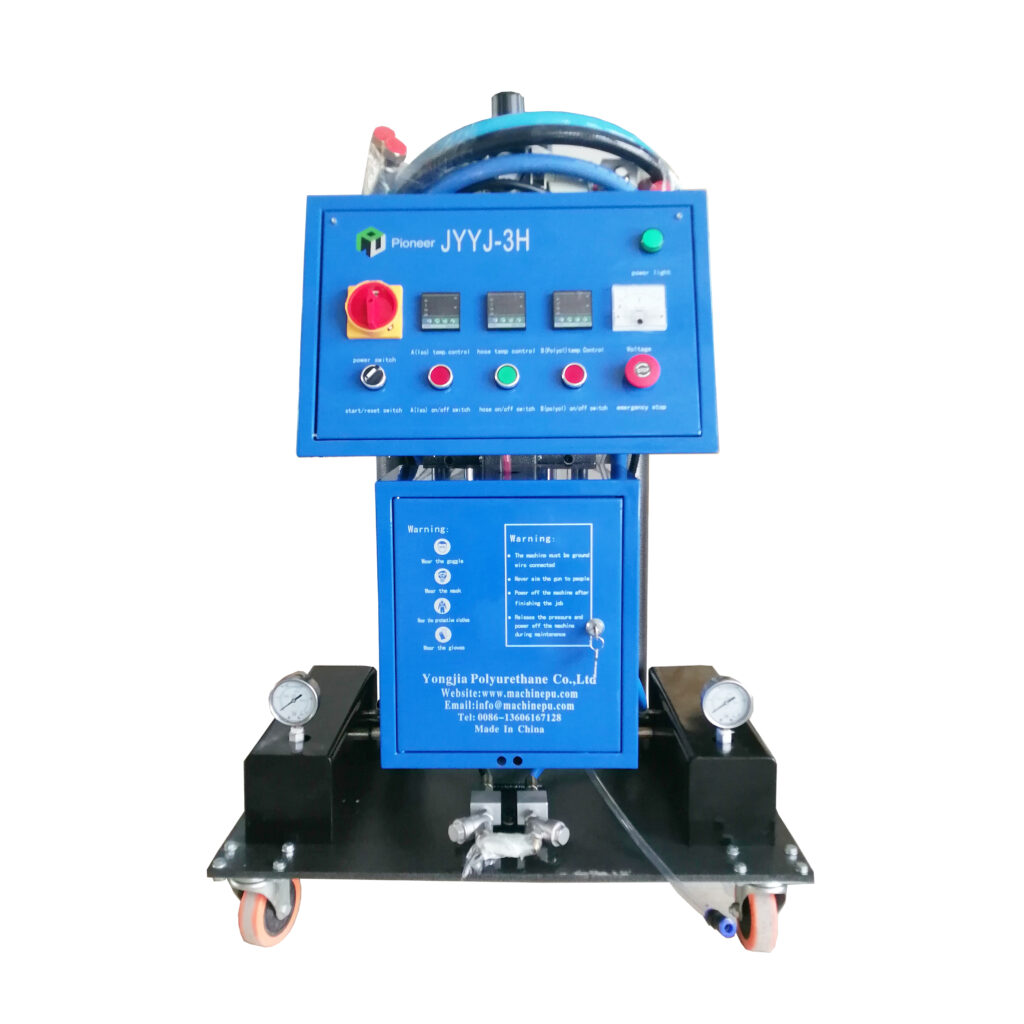Looking to invest in a high-profit business in the booming construction industry? With the global polyurethane insulation market reaching $102 billion by 2026 (MarketsandMarkets), starting a spray foam insulation business offers lucrative potential with rapid ROI (Return on Investment). Let’s explore how to start a spray foam insulation business step by step to maximize profits and achieve sustainable growth.
Introduction: Why Choose Spray Foam Insulation Business?
Energy efficiency and sustainable construction trends have propelled demand for spray foam insulation globally. In the US alone, spray foam insulation is predicted to grow at an annual CAGR of 7% (Grand View Research). Entrepreneurs investing in spray foam insulation report a strong ROI, typically breaking even within 12-18 months.
But how to effectively start a spray foam insulation business? In this guide, we’ll detail exactly that, positioning your startup for immediate impact and sustained profitability.

What is Spray Foam Insulation?
Spray foam insulation is a polyurethane foam product composed primarily of polyol resin and isocyanate chemicals. When mixed under heat and pressure using a specialized foam spray machine, it expands rapidly, filling cavities, sealing gaps, and creating efficient, durable thermal barriers.
Top Applications of Spray Foam Insulation
Spray foam insulation offers diverse industry applications:
- Residential Buildings: Roofs, walls, attics, basements
- Commercial Facilities: Warehouses, industrial complexes, retail spaces
- Industrial Environments: Cold storage units, tanks, pipelines
- Agricultural Facilities: Barns, poultry houses, storage buildings
- Marine Sector: Buoyancy foam for boats and ships

How Does Spray Foam Insulation Work?
Using advanced foam spray machines, the installation process includes several clear steps:
- Preparation Stage: Surface preparation, protective prepping, and equipment calibration. Typical spraying systems deliver component mixing accuracy of ±1%.
- Material Blending: Polyol and isocyanate components mix under controlled temperature and pressure within the spray machine.
- Application: Spraying onto surfaces, foam immediately expands, tightly sealing gaps and crevices.
- Curing Process: Within seconds, the foam cures into a stable, strong, and insulated barrier.
Understanding these steps ensures consistent, high-quality results, ensuring customer trust and repeat business.
Read more about our Spray Foam Equipment→
Comparing Open-cell vs Closed-cell Spray Foam Insulation
Choosing the right insulation type impacts customer satisfaction and your business success.
| Feature | Open-cell Foam | Closed-cell Foam |
|---|---|---|
| Density | Low (~0.5 lb/ft³) | High (~2.0 lb/ft³) |
| Insulation (R-value) | Moderate (R-3.5-R-4/inch) | High (R-6-R-7/inch) |
| Waterproofing | Limited Water Resistance | Excellent Water Resistance |
| Structural Impact | Minimal structural support | Offers Structural Reinforcement |
| Cost-effectiveness | Less expensive initial cost | Higher initial but more durable |
Selecting appropriate foam insulation helps define your niche market clearly.
Main Advantages of Spray Foam Insulation
Investing in spray foam insulation generates fast ROI due to compelling customer benefits:
- Immediate Energy Savings: Homeowners can reduce energy bills by 30-50%, driving high customer demand and referrals.
- Quality Air Sealing: Eliminates drafts and improves indoor air quality significantly.
- Long-lasting Performance: Durable, dependable performance lasting decades.
- Enhanced Building Value: Increases resale market valuation by enhancing home energy ratings (Source: CPI – Center for Polyurethanes Industry).
- Rapid Installation Process: Enables completing multiple projects quickly, boosting revenues and profitability.
Industries Benefiting Most from Spray Foam Insulation
Position your business strategically within these high-return sectors:
- Construction & Renovation Companies: Increasing mandates on energy efficiency create steady demand.
- Warehouse & Cold Storage Facilities: Require reliable thermal performance for temperature-sensitive products.
- Agricultural Businesses: Need efficient insulation to maintain livestock health and productivity.
- Marine Industry: Requires specialized insulation products to ensure flotation and thermal stability.
Trust and Credibility: Partner with Urexceed
Your insulation business’s success strongly depends on choosing reliable, high-performing materials and equipment. Urexceed delivers ISO and CE-certified polyurethane raw materials and highly precise equipment meeting mixing precision at ±1% accuracy. With an annual production capacity exceeding 20,000 tons, we reliably supply numerous well-known global enterprises.
Review successful customer stories and validated case studies in our project portfolio→.
Realistic ROI: Calculating Your Investment Return
Real-world data suggests launching a spray foam insulation business requires an initial investment between $20,000-$60,000 (equipment, training, raw materials). According to industry data (ICIS, Grand View Research), businesses typically recover initial investments within the following timeframe:
- Small to Medium Businesses: ROI achievable within 12-18 months.
- Large Installation Businesses: ROI often realized within 6-12 months due to scale economies.
Clear ROI allows for accurate financial projections and attracts potential investors, ensuring rapid success.
Conclusion & Ready-to-Start Checklist
Starting your spray foam insulation business in 2024 promises excellent profitability, robust market potential, and strong ROI. Now, with reliable materials, precision spray foam machines, and expert industry support from Urexceed, you’re perfectly equipped to enter the market.
